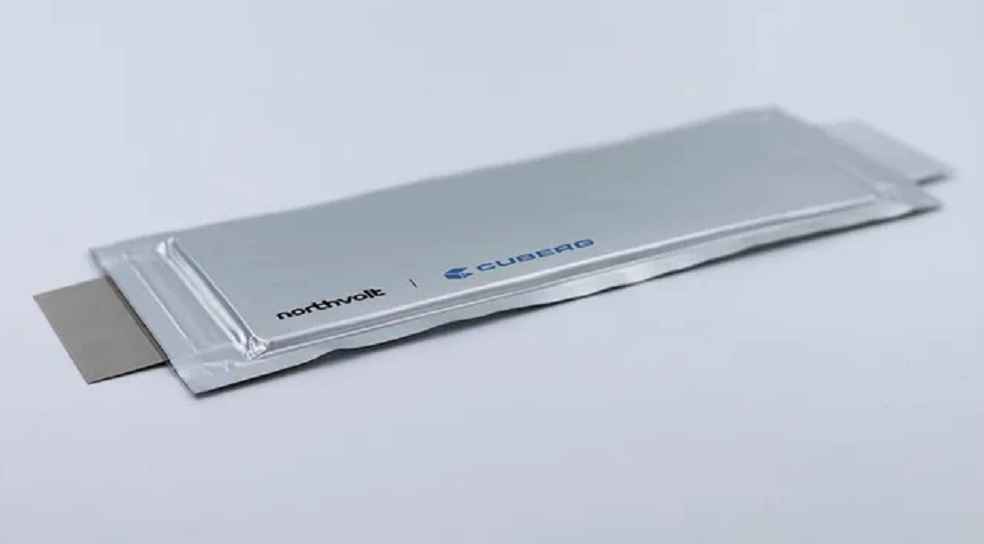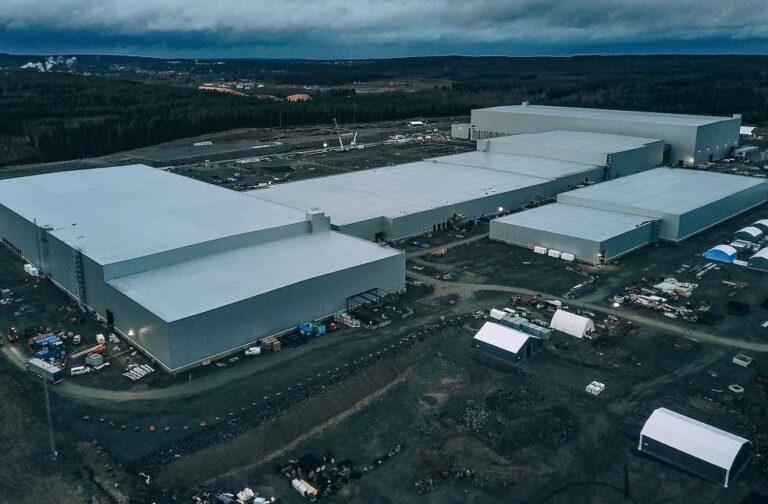Nestled within the industrial expanses of Skellefteå, a northern town in Sweden, the audacious Northvolt Ett – Europe’s premier battery ‘gigafactory’ – emerges as a beacon of global green promise for electric mobility.
Not merely a titan in size, the project wields the ambition to turn out enough batteries annually to fuel a million electric cars. By 2026, it aims to create jobs for 4,000 people, churning out 60 gigawatt-hours of lithium battery cells every year.
The gigafactory’s significant trait stretches beyond its vastness, with Northvolt asserting its soon-to-be-fully-operational batteries as the most eco-friendly globally. This assertion dispels criticisms that electric vehicles (EVs) offer no real reprieve from greenhouse gas emissions due to the carbon-heavy footprint of battery production.

“Batteries so far have been produced mainly on coal power,” concedes Northvolt’s Anders Thor, explaining the strategic choice of location in Sweden’s northern region. The area’s abundance of renewable electricity, particularly hydropower, significantly diminishes the factory’s carbon emissions. According to Thor, factory-produced batteries exhibit 70% lower emissions than those from China, with aspirations to reach a 90% reduction.
While these claims are yet to be independently verified, a recent report by the non-profit organization Transport & Environment supports the impact of geographical location on a battery’s carbon footprint. The report suggests that a factory situated in Sweden rather than China would reduce a battery’s carbon footprint by 40%, based on the varying levels of low-carbon electricity sourcing in these countries.
Production at Northvolt Ett involves three stages – initiating with anode and cathode powder production, followed by turning these powders into slurries which are spread on thin foil rolls, and culminating with the battery charging and quality monitoring process over several weeks. Northvolt’s Sanna Bäckström compares the final step to a cheese factory, emphasizing the intricate care employed to optimize battery performance.

Far from being just a manufacturing hub, the factory also hosts the world’s largest battery recycling facility. It retrieves essential materials such as lithium, nickel, manganese, and cobalt, covering half the raw materials required for onsite cathode production. Sustainability-focused initiatives extend to sourcing raw materials from neighboring mines and utilizing electric trucks for transportation. There’s even a testing site for electric planes at a closeby airport, indicating Northvolt’s commitment to greening the aviation sector.
Despite Northvolt Ett’s vision and scale, the production cannot meet the demand surge for EVs. With more than 10 million cars selling in Europe each year, the region needs a larger number of battery gigafactories to stride closer to net-zero emissions by 2050.
This pioneering Swedish endeavor denotes a substantial leap towards a sustainable future, shaping the global battery industry’s contours. It emphasizes the need for sustainability practices, thus raising the bar for the journey toward a greener future.
AUTOMOTIVE WORLD | Georgia Bans Re-export of Western Cars to Russia, Belarus Under Sanctions



